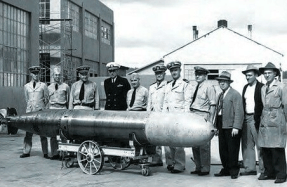OH LORD, HOW I WANT TO GO HOME

Green grows the jungle, bright is the dew Sorry I am that I can’t get to you Until our next meeting, here’s what we’ll do We’ll change that red Sun, to the Red, White and Blue!
Hector John Polla, c.1942
I first read these words in one of a dozen remarkable notebooks that came to me in a large envelope some years ago. I had been aware of their author, a lieutenant in the 57th Infantry Regiment named Hector John Polla, as I’d written about him in my book, Black ’41: The West Point Class of 1941 and the American Triumph in World War II, which told the story of the class that had graduated literally into World War II. Among those 424 men, I had been especially captivated by the stories of Polla and two others who had been the first to face the enemy in ground combat. Polla, along with Californian Ira B. Cheaney and Floridian Alexander R. Nininger, were soldiers who had fought and been decorated in desperate battles on the front lines of the Philippines’ Bataan Peninsula long before most of their classmates had gone overseas.
With those notebooks in hand, Hector Polla now seemed much more real to me. They contained the words—prose, poetry, and meticulous checklists—he had penciled in the months after he was captured by the Japanese on Bataan in April 1942. Polla’s nephew, John Giorza, and his wife Jane had read my book and wanted to share with me the journals Polla had kept while in the infamous Japanese prison camp at Cabanatuan in the Philippines. I copied them and returned the originals to the family.
Some of the notebooks were tiny, vest-pocket ones, the kind that are easy to conceal—which almost certainly was what he did while imprisoned. Others were regular-sized school notebooks with the logo of the Philippine Commonwealth Bureau of Education on the front that the Japanese had probably pilfered and then sold to prisoners at the camp commissary. Polla used them to record the rules of card games in great detail and to jot notes in the Japanese language classes he took, probably voluntarily. He also recorded most of his poetry in the larger notebooks.

A few months ago, I ran—West Point’s yearbook—and at the photo of an earnest young man well-liked for having “lightened many tasks with his cheerful manner.” I reread the citation for his action on February 9, 1942, that earned him a Silver Star. It told of the lives he saved and the position that would not have been held without his bravery. Looking back, this citation is all the more poignant, for we know that the strategic situation for those troops in that place was hopeless, and that their short-term future held defeat, the hellish Bataan Death March, and imprisonment.
You’re reading a preview, subscribe to read more.
Start your free 30 days





